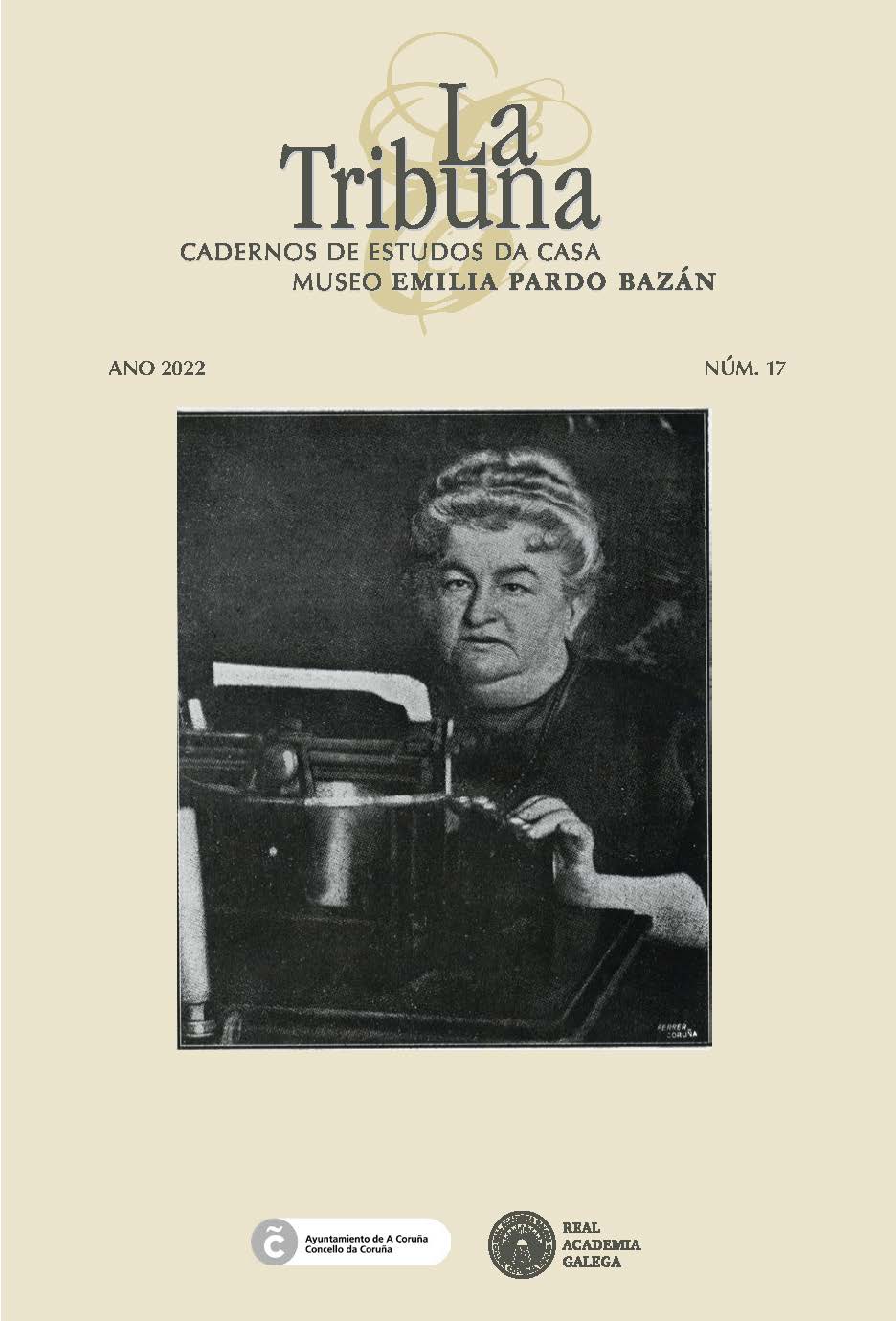Violencia simbólica de género en De siglo a siglo de Pardo Bazán
Downloads
Published
Issue
Section
License
LICENZA DE USO: Os artigos a texto completo incluídos no noso portal son de acceso libre e propiedade dos seus autores e/ou editores. Calquera acto de reprodución, distribución, comunicación pública e/ou transformación total ou parcial require o consentimento expreso e escrito daqueles. Toda ligazón ao texto completo dos artigos do noso portal debe efectuarse ao noso URL.
DOI:
https://doi.org/10.32766/tribuna.17.331Keywords:
Colonialism, Cuban war, symbolic violence, racism, theory of affectAbstract
This article aims to examine Emilia Pardo Bazán’s response to the colonial crisis
at the end of the 19th century, through some examples taken from the articles she published in La
Ilustración Artística, in Barcelona, where she collaborated writing on topics news, in particular
about the colonial war that was taking place in Cuba and the Philippines and the effects on
women in Galicia. In some of the articles collected in From De siglo a siglo (1901) and perhaps
unaware of it, she denounces some cases of symbolic violence –according to Pierre Bourdieu’s
definition– adopting a clearly contradictory attitude: she tenuously defends the powerless
position of women, but underestimates openly from a racist attitude the colonized beings, blacks
and Tagalogs. The theory of affect offers another instrument to explain the attitude of the Galician
writer at that crucial moment.


